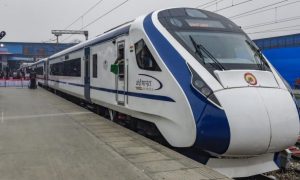The Congress party’s poll manifesto also promises to waive student loans and abolish Agnipath scheme.
The Congress on Friday unveiled “Nyay Patra”, the manifesto for the national elections 2024 with a spate of welfare promises, including a Rs 1,00,000/annum “unconditional” income support to “each poor family” and “universal” cashless health insurance of up to Rs 25 lakh for all families. The largest Opposition party, which ruled the country for the longest period, but has been out of power at the Centre for the last decade, also promised to waive student loans, including unpaid interest, fill 3 million vacancies in the central government and abolish the Agnipath scheme (short-term contractual recruits in defence forces) by resuming regular hiring.
Read More: Supreme Court pauses order scrapping UP Madarsa Act: High Court misconstrued it
The largesse promised could be fiscally extravagant and impractical unless substantial additional resources are moblised through means like hefty new taxes, analysts said. The promised income support – Mahalakshmi scheme – for the poor itself could cost the exchequer as much as Rs 10.7 trillion or nearly a quarter of the size of the Union Budget FY24, assuming the number of “poor and vulnerable families” remain 107 million as identified by the Socio-Economic Caste Census 2011, the latest available.
While several economists and Niti Aayog functionaries argue that poverty has fallen to just 5%, this is contested by many, who see an increase in incidence of poverty after the pandemic. The Congress hasn’t explained in the manifesto how exactly the “poor families” would be identified or the scheme funded.
It said the poor will be identified “among the families at the bottom of the income pyramid”. The scheme will be rolled out in stages and reviewed every year to assess the number of beneficiary families and its impact on alleviating poverty, it said.
Read More: India To Stop Importing Urea By 2025 End: Mansukh Mandaviya
The cost of a universal basic income scheme (UBI) is likely to be astoundingly high, which V Anantha Nageswaran, chief economic advisor, had said earlier, contending that it would not be practical for a developing country like India.
The Congress also promised to introduce a single goods and services tax (GST) rate with a few exceptions and a Direct Tax Code to streamline income tax structure. It will also work to raise the 50% cap on reservations for SC, ST and OBC, and reserve 10% in jobs and educational institutions for economically weaker sections for all castes and communities without discrimination.
However, the Economic Survey 2016-17 authored by the then CEA Arvind Subramanian had indicated that the UBI deserves a careful examination. Such a move, aimed to wipe out poverty in the country, would bring down the poverty level to 0.5% in the country but would cost 4-5% of the gross domestic product, the Survey had noted. From 70% at the time of Independence, India’s poverty has come down to about 20%. It had said that the idea was for UBI to replace all subsidies and provide direct cash benefits to individuals to push them out of poverty.
Read More: IMD Predicts Heatwave In Next 2 Days, Heavy Rainfall in These States | Details Here
Attacking the Narendra Modi government, the Congress said the unemployment rate is 8% and among graduates, the unemployment rate is over 40%. “Despite the claim that India is the fastest growing large economy in the world, our growth rate has fallen from an average of 6.7% (new series) during the UPA period of 2004-14 to an average of 5.9% during 2014-24,” the Congress said.
The Congress party promised to fill the nearly 3 million vacancies in sanctioned posts at various levels in the central government. Going by the exorbitant pay and allowances cost of Rs 3 trillion/annum to the exchequer of the current civilian staff strength of 3.56 million, the additional recruits could significantly inflate revenue expenditures of the Centre.
The Congress’ promise of health insurance is modelled on Rajasthan’s cashless insurance up to Rs 25 lakh for universal healthcare. Under the scheme, which was launched by the previous government by the party in the state, health insurance cover is provided to all families below the poverty line, and under NFSA to EWS & SECC categories for free. Families not falling under the eligibility criteria can also get insured by paying a nominal premium of Rs 850 per annum.
If it were to be rolled out nationwide for SECC poor families, the cost could be over Rs 50,000 crore/annum, including the Centre’s share of Rs 30,000 crore compared with Rs 7,000 crore that the Centre spends now for Rs 5 lakh free health cover under PM Jan Arogya Yojana.





































